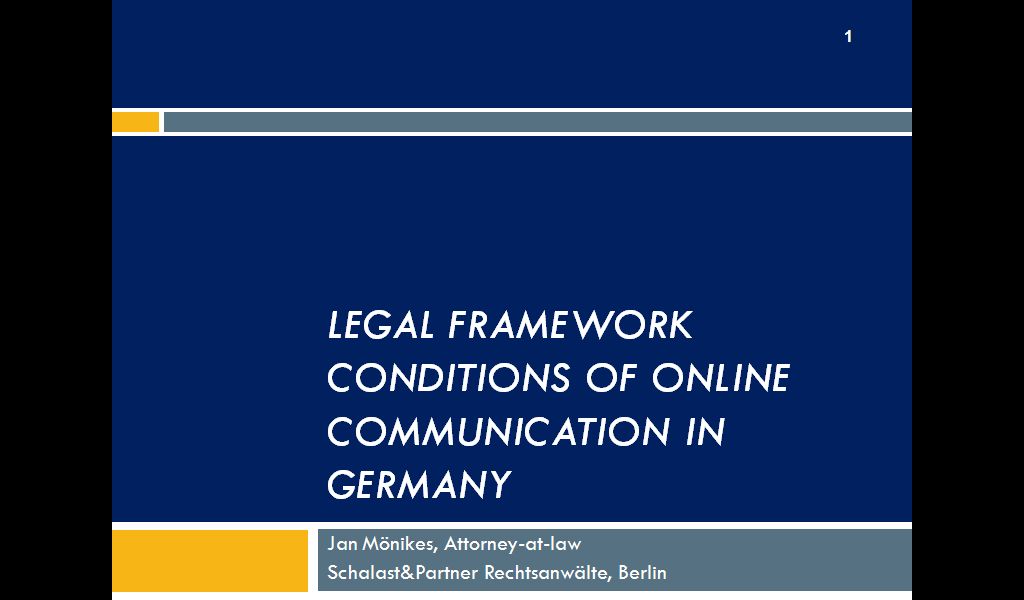Based on the experience with the atrocities of the Nazi regime, human rights in Germany are protected extensively by the constitution and the courts. Germany has ratified most international human rights treaties. Reports from independent organizations such as Amnesty International certify a high level of compliance with human rights.
Monitoring communication and “censorship” of media by government or courts is allowed only in a very restricted manner to gurantee freedom of expression. Privacy and Data Protection is strongly protected by law.
According to the “Reporters Without Borders Press Freedom Index”, Germany is currently ranked 18th (USA: 20th) out of 175 countries in the world in terms of press freedom. But: the internet challenges the German laws regarding privacy and the possibility of national law enforcement. Due to political symbolism and helplessness, a tendency can be noted to limit the freedom of internet more than would be considered with regard to classic media.
I was invited by the German Ministry of Foreign Affairs to give a lecture on the Internation Blogger Tour about the LEGAL FRAMEWORK CONDITIONS OF ONLINE COMMUNICATION IN GERMANY. The presentation of the speech can be downloaded by clicking on that link.


Noch keine Kommentare